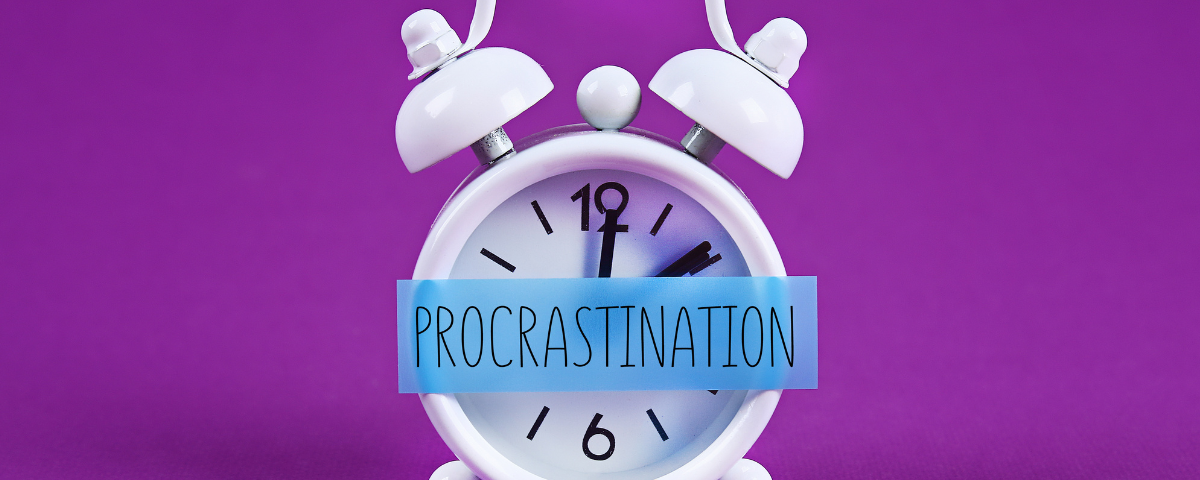If you suffer from procrastination and are looking for a natural solution to improve your productivity, you have just found the supplements! We will explain “procrastination supplements”, what each term means, and how to improve focus and concentration.
Supplements for productivity, focus, and concentration are called Nootropics. The etymology comes from Greek and represents a “Double Mind,” being “νους nous” – “mind” and “τρέπειν trepein” – “double.”
These nootropics act as cognitive ‘enhancers’ in our brain, boosting the most common functions, such as memory, and even our productivity…
This happens in our brain from its neural connections. To explain further, the complexity of the brain is not in the number of neurons – there are about 10 billion of them – but in how they communicate.
The capacity of connection of each neuron will directly influence how messages are transmitted and read in our minds. Each neuron has, on average, a possible link with about 10,000 other neurons, so this communication must be effective.
From this, when we talk about procrastination, we want this community within our brain to function optimally and thus enable us to have good cognitive performance!
But before that, it is essential to understand what can happen in a brain with low neural communication! After all, do you know what procrastination is?
What is procrastination?
Procrastination is the tendency to put off or delay accomplishing something necessary. It is a behavior that can have negative consequences for an individual’s personal and professional life.
Many people struggle with procrastination, and it is a common problem. However, understanding the causes and effects of procrastination can help individuals better manage their behavior and make positive changes.
Procrastination is a behavior that many different factors can cause. For example, it can be caused by an individual’s perfectionism, low self-confidence, or fear of failure.
It can also be caused by an individual’s lack of motivation or inability to prioritize tasks. In addition, procrastination can result from a lack of interest in a task at hand or a lack of knowledge about it.
Fortunately, this behavior can be managed and improved. First, you can start by understanding the causes of your procrastination and working to address them. Then, better time management skills can be developed, and tasks can be broken down into smaller, more manageable chunks.
In addition, natural supplements can inherently support cognitive health by helping neural connections! That’s because a procrastinator’s brain works differently.
Procrastination and the brain
Some German scientists investigated and published their results in Psychological Science about procrastination and the brain. After studying 264 individuals, it was discovered that two areas of the brain are responsible for procrastinating behavior and that emotions are closely linked.
The researchers found that the amygdala, which is responsible for processing our emotions, is more significant in procrastinators. In addition, this brain structure’s weaker and ineffective connection with the anterior cingulate cortex, which acts as an intermediary for acquiring information from the amygdala and sending signals to the body, is notable.
From this, we can conclude that there were fewer connections between the amygdala and the DACC (Dorsal Anterior Cingulate Cortex) in the procrastinators’ brains, indicating that these connections were weaker.
The DACC uses data from the amygdala to determine what actions the body should take. This action helps maintain focus by blocking out possible distractions that could interfere with the task.
Erhan Genç, one of the study’s authors from Ruhr University Bochum in Germany, explains that individuals with a larger amygdala are more prone to anxiety about adverse outcomes of action and thus may hesitate and postpone tasks.
The researchers state that people who postpone their tasks have more difficulty concentrating on a particular job because their connection between the amygdala and the DACC (Control Conduction Area) is less effective than those who are usually proactive.
Often this happens without us knowing it because we believe it is something familiar and trivial without a solution. However, we know that procrastination can be a severe problem and disrupt life to a great degree.
When is procrastination a problem?
Putting off or postponing activities that used to be done quickly may indicate severe procrastination or mental health problems, such as depression, anxiety, and reduced cognitive ability.
Health professionals warn that the inability to perform tasks that were normal for the individual associated with the feeling of incompetence may signal psychiatric disorders.
And it is precisely at this point that you should realize that procrastination is a real problem. Remember, if something bothers you, it should be looked at – regardless of the degree – but some points should be considered more severe warnings, such as those mentioned above.
It would help if you took care of your mental health, such as anxiety, depression, and stress. But beyond that, keep an eye on clinical aspects of cognition, such as the consequences of chronic procrastination. After all, it also impacts other areas, such as mood and, consequently, dopamine levels.
Procrastination and mood
Procrastination and mood are closely linked. People who struggle with procrastination often experience guilt, anxiety, and depression. This can lead to a vicious cycle where the more they procrastinate, the worse they feel and the more they procrastinate.
On the other hand, people who can manage their procrastination can experience improved moods and a greater sense of satisfaction and accomplishment. Therefore, it is essential to recognize and address procrastination to maintain a positive attitude and mental well-being.
Low dopamine symptoms
Low dopamine levels are associated with some symptoms, including depression, fatigue, poor concentration, low motivation, and procrastination. In addition, low dopamine levels can lead to a decreased sense of reward and pleasure, making it challenging to find the motivation to complete tasks.
These low levels can also lead to an inability to focus and concentrate on tasks, leading to procrastination. In addition, procrastination can be a symptom of depression and anxiety, which can be associated with low dopamine levels. If a person is experiencing common dopamine symptoms and procrastination, it is essential to seek professional help from a mental health provider.
It is precisely because of all this burden related to cognitive performance, such as anxiety, stress, depression, and procrastination, that nootropics have stood out. Check out how and what they are:
What are procrastination supplements?
Nootropics – or procrastination supplements – increase dopamine levels in two main ways. First, they help the body produce more dopamine, allowing the brain to use nutrients better to create neurotransmitters.
Second, some nootropics contain compounds that improve the uptake and availability of dopamine, allowing the brain to use dopamine more efficiently.
In addition, some nootropics also benefit the body, such as improving cognitive function, reducing stress and anxiety, increasing concentration, and improving mood. These nootropics are:
- Ginseng: Ginseng is one of the best natural supplements to help combat procrastination. It can increase your focus and concentration, helping you feel more focused and motivated to accomplish the tasks you have to do.
- Ginkgo biloba: Ginkgo biloba is a popular supplement to improve memory, concentration, and focus. It can also help increase energy and motivation, which can help combat procrastination.
- Magnesium is an essential mineral that helps balance energy levels and control stress. Studies show that magnesium can improve focus and reduce anxiety symptoms, which can contribute to procrastination.
- Vitamin B: B vitamins help improve mental health. They can also help combat procrastination, as they help lower anxiety levels and improve mood.
- Omega-3: Omega-3 fatty acids are great for mental health as they help improve concentration and focus. Studies show that omega-3 consumption can help reduce procrastination.
Noobrain nootropics for procrastination
Now that you know the best supplements for procrastination, you should also choose the best brand!
There are many supplement stores, but one delivers a customized formula according to your needs, only with the Nutratherapy® method.
This is because the method encompasses active filters from your answers, resulting in a high-quality cognitive supplementation based on science, free of side effects, with a post-purchase follow-up created from your eating habits.
So save time! Take our free trial and find out which Noobrain supplements are best for your brain health.

